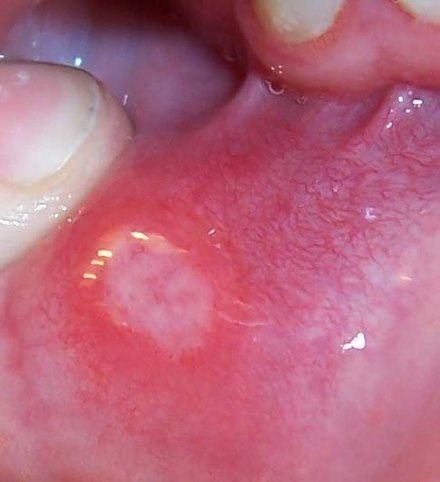Crohn's Disease
Crohn's disease is a chronic inflammatory bowel disease (IBD) that can affect any segment of the gastrointestinal tract. It is characterised by periods of flare-ups and remission, and its aetiology remains uncertain, involving a combination of genetic, environmental, and immune factors.
Signs and Symptoms
The primary symptoms of Crohn's disease include abdominal pain, diarrhoea (which may be bloody), fever, weight loss, and fatigue. Patients may also experience mouth sores, reduced appetite, and abdominal distension.
Complications can include anaemia, skin rashes, arthritis, and an increased risk of bowel cancer.

Gastrointestinal Symptoms
- Intestinal Involvement: The intestines, particularly the terminal ileum and colon, are most commonly affected. Symptoms include chronic diarrhoea, abdominal pain, and bloating. Severe cases can lead to bowel obstruction.
- Perianal Symptoms: Patients may experience perianal discomfort, including itchiness, pain, and complications such as anal fissures, fistulae, and abscesses.
- Stomach and Oesophagus: Although rare, Crohn's can affect the stomach and oesophagus, leading to symptoms like dysphagia, upper abdominal pain, and vomiting.
Systemic and Extraintestinal Manifestations
- Systemic: Symptoms can include fever, weight loss, and malnutrition due to reduced food intake and malabsorption.
- Extraintestinal: Crohn's disease can affect the skin (erythema nodosum, pyoderma gangrenosum), eyes (uveitis, episcleritis), liver (primary sclerosing cholangitis), and joints (arthritis, ankylosing spondylitis).

Diagnosis
Diagnosis typically involves a combination of clinical evaluation, endoscopic procedures, and imaging studies.
- Endoscopy: Colonoscopy allows direct visualisation of the colon and terminal ileum, with biopsy samples taken for histopathological examination.
- Imaging: CT and MRI scans are used to evaluate the small bowel and detect complications such as abscesses or fistulae.
- Blood Tests: Complete blood counts can reveal anaemia, and tests for inflammatory markers like ESR and CRP help assess the degree of inflammation.

Treatment
There is no cure for Crohn's disease, and treatment focuses on managing symptoms and maintaining remission.
- Medications: Treatment may include corticosteroids for acute flares, immunosuppressants like azathioprine or methotrexate, and biological therapies such as anti-TNF agents (infliximab, adalimumab).
- Lifestyle Changes: Dietary modifications, smoking cessation, and regular exercise are recommended to help manage symptoms.
- Surgery: While not curative, surgery may be necessary for complications such as bowel obstructions, fistulas, or abscesses.

Prognosis
Crohn's disease is a chronic condition with a variable course. With appropriate management, many patients can maintain a good quality of life.
Regular monitoring and early intervention for complications are very important to improving outcomes.

Crohn's disease continues to be a significant medical challenge due to its complex and multifactorial nature. Ongoing research aims to better understand its pathophysiology and develop more effective treatments.
Self-assessment MCQs (single best answer)
What is the most common age range for the onset of Crohn's disease?
Which part of the gastrointestinal tract is most commonly affected by Crohn's disease?
Which of the following is NOT a typical complication of Crohn's disease?
Which diagnostic method is considered the gold standard for diagnosing Crohn's disease?
Which of the following is a common extraintestinal manifestation of Crohn's disease?
Which type of medication is commonly used as an initial treatment to rapidly improve symptoms in newly diagnosed Crohn's disease patients?
What dietary change is often recommended for patients with Crohn's disease to help manage symptoms?
Which of the following genes is most commonly associated with an increased risk of Crohn's disease?
Which imaging modality is particularly useful for evaluating small bowel complications in Crohn's disease?
What is the primary goal of maintenance therapy in Crohn's disease?
Dentaljuce
Dentaljuce provides Enhanced Continuing Professional Development (CPD) with GDC-approved Certificates for dental professionals worldwide.
Founded in 2009 by the award-winning Masters team from the School of Dentistry at the University of Birmingham, Dentaljuce has established itself as the leading platform for online CPD.
With over 100 high-quality online courses available for a single annual membership fee, Dentaljuce offers comprehensive e-learning designed for busy dental professionals.
The courses cover a complete range of topics, from clinical skills to patient communication, and are suitable for dentists, nurses, hygienists, therapists, students, and practice managers.
Dentaljuce features Dr. Aiden, a dentally trained AI-powered personal tutor available 24/7 to assist with queries and provide guidance through complex topics, enhancing the learning experience.
Check out our range of courses, or sign up now!


